 Think "farm" and there it is, just as bright and crisp as the photo on a feed-store calendar: a vision of tidy fences, a neat rows of crops, clean animals placidly munching lush pastures. It's nothing new, nothing unique, this pretty ideal. Classical Romans and Greeks cherished the image of pastoral beauty. They made a whole genre of it. The <ahem> Pastoral. Still, it's a long way between ideal and actuality: even leaving out the amount of salty sweat and hard work, there's just so much to learn in transforming a lapsed dairy farm into something that feels like The Farm. Take even a short wander across one of the meadows, and the questions follow one on the other, like hungry livestock rushing the trough:
Consult the Google? Well, my phone is not that smart, and besides, I enjoy taking a break from the lure of online research while at the Farm. Plus, she noted galactically, my solar system is not finished, so the battery must be conserved. Old style. The bookshelf starts to groan under the weight of curiosity: This reference shelf in turn gives me more fodder (ooh! a farming metaphor!) for agricultural day-dreams and even more blathering on, as I begin to realize how vast is my ignorance... *Pasternak? Almanack? I don't know, I guess I'm still working on my Cockney rhyming slang. Or perhaps it's a homonym (a word that does not, honestly, have a gay subtext) with "pasteurize" or possibly, (to complete the full circle of piffle!), with "pasture."
0 Comments
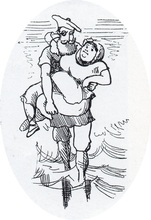 Thank you, James Frances Child. Born in 1825, this son of a sailmaker* went to Harvard on scholarship and later put his passion into studying and collecting the folk songs of Scotland and England. Starting in 1882, he published ten volumes of English and Scottish Ballads with notes and side-by-side commentary about multiple versions of 305 songs. He categorized the ballads by theme ("Supernatural Beings," "Tragic Other than Love," "Humor," etc.) and numbered them. For example, Child #26 is "The Twa Corries" also "The Three Ravens," a song from before 1600 about carrion birds discussing their future meal of the body of a fallen knight. Child #39 is "Tam Lin," which has a dozen versions of the story in which a spunky maiden must save the handsome human knight she loves from his doom as a prisoner of the court of Elfland. Some may remember Sandy Dennys of Fairport Convention singing it. The story of Janet (or Margaret, depending on the version) and her knight has inspired a handful of recent novels, including two that I like very much:
It's funny and suspenseful and –– like so many of Jones' novels –– very cleverly plotted. As I lift the book from my shelf, I see that I purchased it from The Strand Bookstore for $2.
Chosen simply because it was published by Greenwillow Books, which was then run by one of my publishing idols, Susan Hirschman, it has been a happy find and a great bargain. A sort of literary child of Child. (* No, really... Which make these also the grandkids of a sailmaker.) I imagined that it would be easy to list a dozen things a day that make me happy. Two dozen. More –– I recognize that I live a cheerful and lucky life. But as it turns out, it's often the same things each day. Here are a few:
In any case, I'm okay with Disney pink these days. Wear pink all you like, boys and girls, but please learn to change the oil in the lawn-mower and don't turn your nose up because some skill set seems to belong to the other half of the world. That is all. Carry on. (These images lifted from Arthur Rackham's wonderful illustrations for Grimm's Fairy Tales and The Romance of King Arthur and His Knights of the Round Table, Alfred W. Pollard's abridgment of Malory's Le Morte d'Arthur.)
Once, while I was writing at the coffee shop in the Barnes & Noble Bookstore, I noticed a crowd slowly gathering. And gathering. And gathering. Then a gal plopped down at my tiny cafe table and said, by way of apology, "My feet are killing me." She flashed me a look at her ticket –– "Number 437 if you can believe it!"–– and, perhaps recognizing my confusion, she added, "I don't read anything except I just LOVE this Janet Evanovich and Stephanie Plum!" She was waiting to get a book signed by the author. The old-fashioned term dipsomania –– from the Greek of thirst + excitement –– seems wasted as a way to refer to alcoholism. There are dozens of other colorful options: call someone a rummy, a wino, an alky, a drunkard, a soak; say they are soused, pickled, zonked, pissed, impaired, tipsy, hammered. I wish there were a parallel Greek term for the specific greed that certain writers engender in their fans. Bookthirstia, maybe, anyway, the kind of appetite that makes 400+ ladies of a certain demographic gather in a bookstore waiting for Janet Evanovich to arrive with her police escort. It's not limited to any demographic, I know this. The hordes of Harry Potter readers, the legion of Dickens-fanciers and Brontë-ites –– you can't guess who it's going to strike. Papa Joe was rendered gleeful by the addition of a Louis L'Amor in his Talking Books package. My mother amassed a complete collection of Gene Stratton Porter, and re-read the oeuvre at least once a year. She also tried for the whole Andre Norton, but I suspect she missed a few. Looking at the bookshelves across the room from this glowing screen, it's clear that I, too, have a galloping case of whatever-it-is-itis: 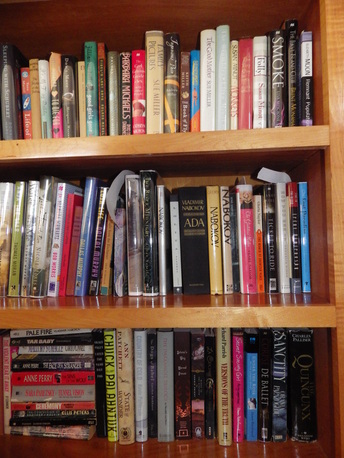 It's not uncommon for me a grill complete strangers about what they are reading, whether they like it, and what else they've read recently. The impulse to talk books often overwhelms my meagre grasp of social skills. It's maybe akin to having a golden retriever trot up to you at the park with its tail waving like a hairy flag; it sticks a cold nose onto your leg in a manner that is startling but patently harmless. I understand that it's rude but I am driven by some effervescent mix of my mom's unflappable busybody nature and the entitled attitude I copped from newspaper reporting. I don't break in if they are actually reading, but I'll ask when they are just -- you know -- carrying. For every time I indulge in this obnoxious curiosity, there are five times I have resisted giving into the impulse... And with that -- whatcha reading? Huh? Huh? Here's me: I have the Complete Collected Dorothy Parker at bedside. I've been dipping into it for a year or so -- Parker is such a smart writer. I gobbled down Hilary Mantel's bleak and hilarious Beyond Black recently. I finally got around to reading Elizabeth Gaskell's Cranford, and I am about half way through Jon Green's The Fault In Our Stars. I am listening to the audio production of To Be Sung Underwater by Tom McNeal. At the bookstore recently, I was excited to see Eleanor Catton's The Luminaries and Donna Tartt's The Goldfinch both in paperback. And -- o0oh! -- new books from Lorrie Moore, Ian McEwan, Sarah Waters (sqee!), Garth Stein, Lauren Beulks, Wally Lamb and more. I think it will be a good year for reading. Now you go: What ARE you reading? There is so much to be happy about, I don't know why I ever complain about anything. That said, and a long list of grievances put aside for now, here are a few more things that make me feel grateful:
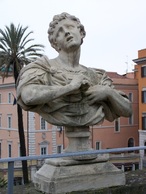 Seems like it was Mrs. Larney's Latin class that had us chanting, "Single: I-you-he/she/it, Plural: we-you-they" to memorize the various grammatical persons. So much of what Mrs. Larney taught really stuck with me -- and for so many years, too. When I started reading The Weird Sisters by Eleanor Brown, I was reminded of that chant. Many novels are told from the perspective of first person -- presenting the events from that person's singular and peculiar point of view. For example (and these first lines are identified at the end of this blog entry): "I have just come home from a visit to my landlord -- the only neighbor I shall be troubled with," or "Last night I dreamt I went to Manderley again," or "You don't know about me without you have read a book called The Adventures of Tom Sawyer, but that ain't no matter," or "The first place that I can well remember was a large pleasant meadow with a pond of clear water in it." The Weird Sisters (the title a reference to Shakespeare's King Lear) takes first person to an unusual level: the plural. Instead of "I," it's "we" talking to the reader.
The book is good -- I wouldn't be bubbling about it otherwise -- and not just because of the novelty of first-person plural. The writing is supple and interesting, rich with matter-of-fact observations and clever references, and vivid characters (the girls' father is a scholar of Shakespeare who nearly always speaks with a quotation from the Bard, for instance). The sisters' coming-home adventure is engaging, and author Eleanor Brown performs a kind of magic trick in presenting that peculiar collective identity often shared by sisters at home.
Rather than focusing on the suicides from the perspective of a single boy witness, author Eugenides expands the scope, magnifying the bewilderment and mystery. The events of that year take on the significance of myth, and the boys come to sound like a Greek chorus: "Sometimes, drained by this investigation, we long for some shred of evidence, some Rosetta stone that would explain the girls at last." It's funny and horrible and very affecting.
It's an old truth that bears repeating: the perspective from one tribe never quite reaches the far side of other people's lives. Maybe this is the work of all good novels, to give the tribe of readers a peep into someone else's experiences. * Wuthering Heights by Charlotte Bronte Rebecca by Daphne du Maurier Huckleberry Finn by Mark Twain Black Beauty by Anna Sewell
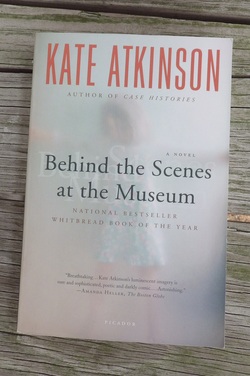 Or double-click and download this book. Right now. Seriously. Still reading my blog? Thank you, and no, this is not my pen name. Still here? Bless your heart! Okay, I can understand doubt and resistance. Let me blab a little about Behind the Scenes at the Museum by Kate Atkinson. I've been disappointed by some of the prize winners out of the UK (Not naming names, but the Booker Prize, "the best original full-length novel in the English language" has me scratching my head on a regular basis). But this one --! Kate Atkinson's debut novel, Behind the Scenes at the Museum, won the Whitbread (now Costa Award) in 1995. I regret not having found this one sooner, because she is a wonderful writer (she has a compelling mystery series featuring Jackson Brodie including the lovely title Started Early, Took My Dog) and this a great story. The novel starts: "I exist! I am conceived to the chimes of midnight on the clock on the mantelpiece in the room across the hall. The clock once belonged to my great-grandmother (a woman called Alice) and its tired chime counts me into the world." And continues as the narrator, Ruby, is born ("I don't like this. I don't like this one little bit. Get me out of here somebody, quick! My frail little skeleton is being crushed like a thin-shelled walnut.") into 1952 York, in the north of England. The family -- unhappily married George and Bunty, Ruby's sisters, a grandmother -- lives above their pet shop. Each is wrapped in his and her own concerns, which are carefully observed by Ruby in a way that is by turns laugh-out-loud funny and breathtakingly sad. The storytelling seems like magic: "Tom, however, continued to believe that Lawrence had been spirited away into thin air, infecting the younger children with the idea so that for ever afterwards when they remembered Lawrence they remembered him as a mystery, for they never heard from him again, although he did try to write but the family had moved on by then." Ruby tumbles over and then circles a handful of family secrets. The secrets are neither spectacular nor sordid, but they resonate and amplify forward and backward into the past of the family. Yeah, I know, I make it sound...not so spectacular. But believe me when I say get your nose into this book. And then don't plan to get anything done until you've finished. You're welcome. In advance. |
About the Blog
A lot of ground gets covered on this blog -- from sailboat racing to book suggestions to plain old piffle. FollowTrying to keep track? Follow me on Facebook or Twitter or if you use an aggregator, click the RSS option below.
Old school? Sign up for the newsletter and I'll shoot you a short e-mail when there's something new.
Archives
February 2024
Categories
All
|
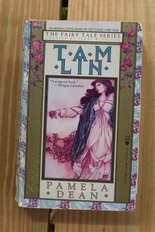
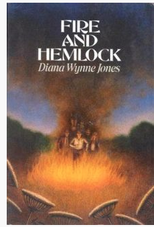

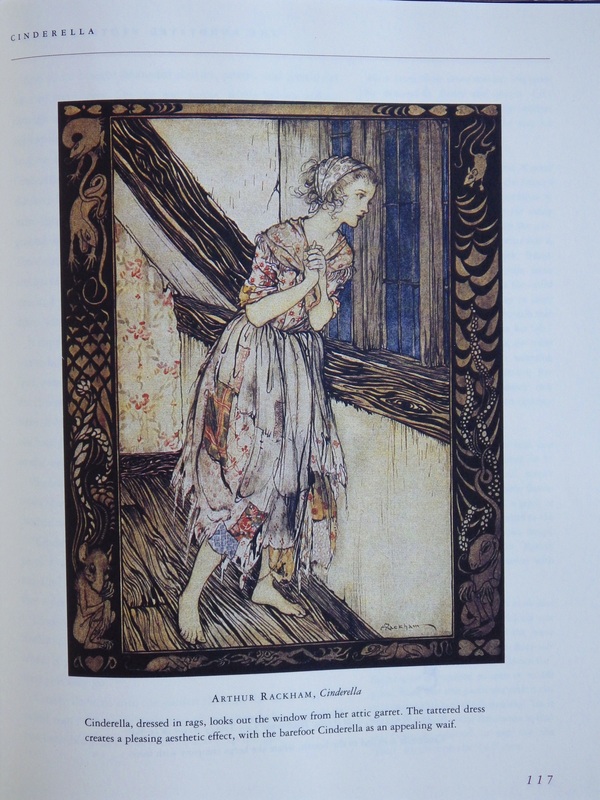
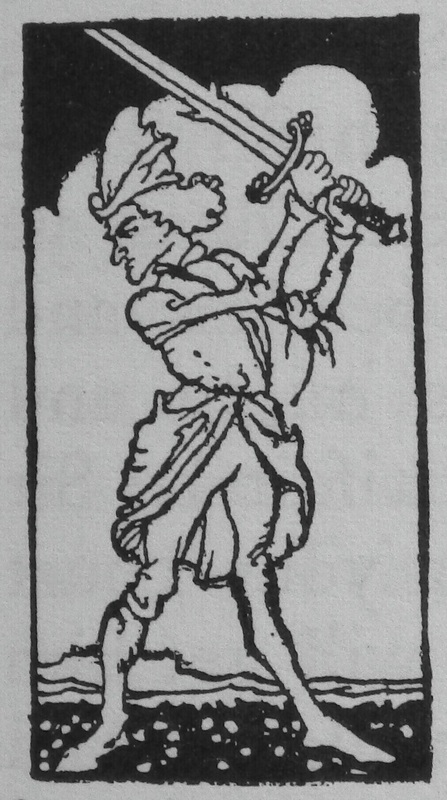
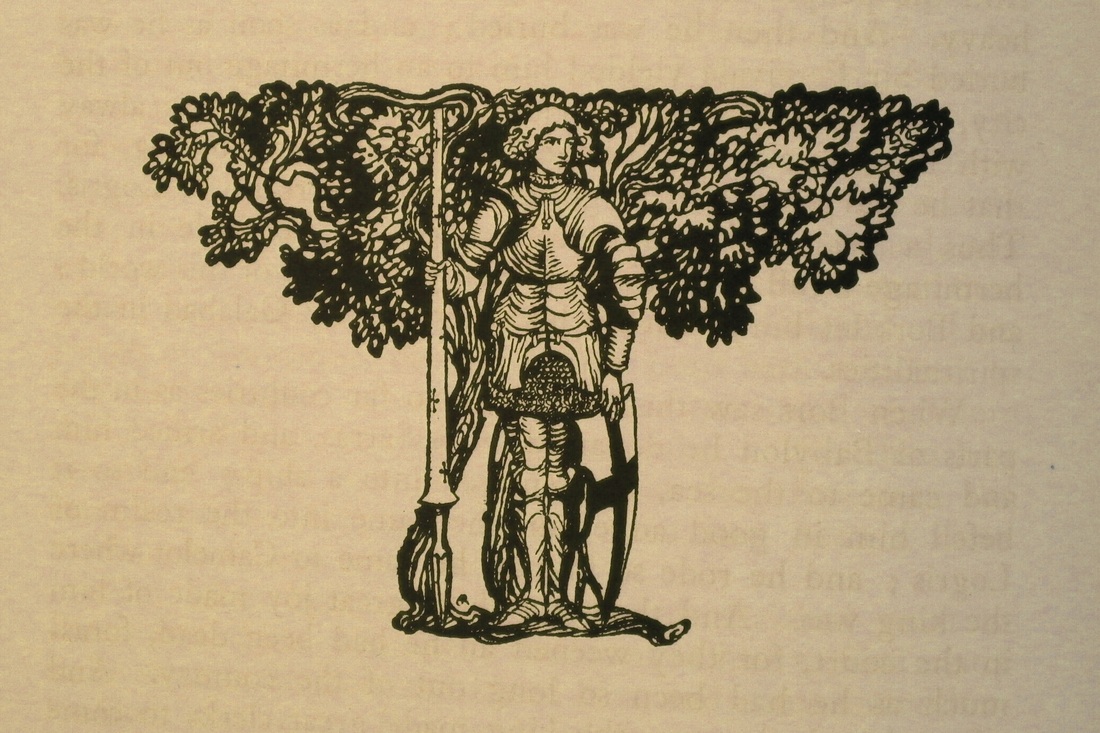

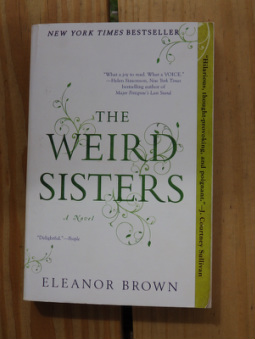
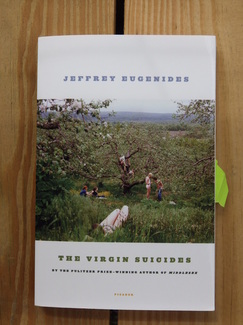

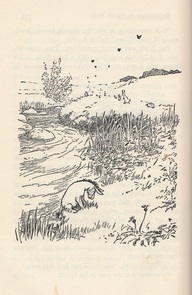
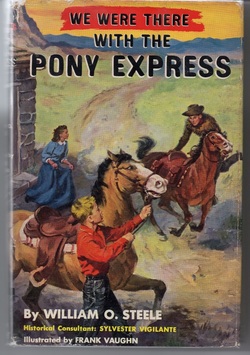
 RSS Feed
RSS Feed
